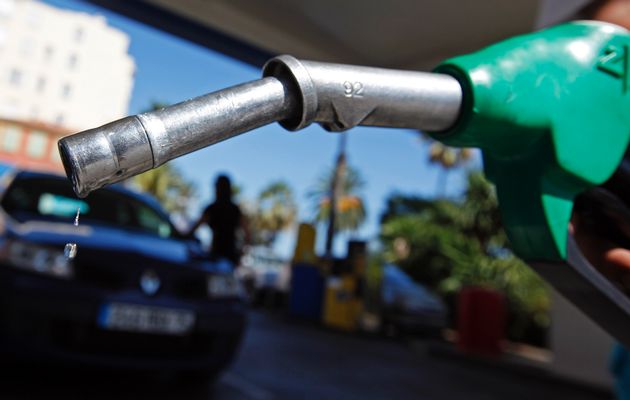
With N138.62 approved by the Petroleum Products Pricing Regulatory Agency (PPPRA) as ex-depot price for a litre of petrol, the stage is set for Nigerians to pay more for petrol.
Many filling stations in Lagos were shut on Tuesday in anticipation of the price hike.
National Vice President of the Independent Petroleum Marketers Association of Nigeria (IPMAN) Abubakar Maigandi told The Nation last night that the PPPRA raised the depot price from N132/N133 per litre by N6 per litre.
According to him, the agency has approved an ex-depot N138.62 per litre price for this month.
A source, who was also part of the meeting for the monthly prices review said the agency did not come up with a new pump price. “We are yet to know the new dealer prices,” the source said.
But, a PPPRA source said the Federal Government was silent on the dealer prices which may be between N145. 68 and N150 per litre.
According to our source, the product has been deregulated and the government would not want to interfere with it or be seen to be insensitive to the plight of the customers by announcing a price hike.
The source said: “The government is weighing the option of outright announcement of the increase of the dealer prices to a band of N150 per litre in the face of the current hardship. On the other hand, it has resisted the temptation of not interfering with the market fundamentals which determine the price review.”
The source added that the upward review followed the rise of crude oil prices in the international market.
The Brent Crude that sold for $43.24 per barrel in July now sells for $44.03 per barrel.
Last month, the PPPRA had approved a pump price of a band of N140.80 to N143.80 per litre.
It was the first time that the agency approved a new price after the removal of petrol subsidy.
Prior to the July 1 hike, the agency had on May 1, approved price band of N121.50 to N123.50 per litre for the product.
The refusal by some filling stations to dispense fuel to consumers caused anxiety in Lagos yesterday.
It was learnt that the price increase ought to have been increased since but for the Eid-El-Kabir holidays.
Some marketers felt that the rise in crude oil price in the international market could lead to an adjustment of the petrol price.
Nigerians took to social media platforms yesterday suggesting that they might pay between N145 and N150 for a litre of fuel.
At the international market yesterday, oil prices slid amid concerns that a nascent recovery in fuel demand could stall as a fresh wave of COVID-19 infections around the world sparks tighter lockdowns.
This is just as major producers ramped up output.
United States (U.S). West Texas Intermediate (WTI) crude futures fell 30 cents, or 0.7 per cent to $40.71 a barrel at 0414 GMT, while Brent crude futures fell 37 cents or 0.8 per cent to $43.78 a barrel.
The slide comes after WTI rose 1.8 per cent and Brent climbed 1.5 per cent on Monday on better-than-expected data on manufacturing activity in Asia, Europe and the U.S.
The activity showed factories emerging from the worst of the early coronavirus pandemic impact.
“On the demand side, we had quite encouraging global manufacturing (data) … but there’s still quite a bit of evidence of the oil demand recovery stalling in quite a few markets with a resurgence of COVID-19,’’ said Lachlan Shaw, Head of commodity research at National Australia Bank (NAB).
Denting fuel demand, cities from Manila to Melbourne are tightening lockdowns to battle new infections, while Norway has stopped cruise ship traffic in the latest European travel alarm.
In a further sign of a patchy rebound in demand, analysts estimate U.S. refined product stockpiles rose last week, according to a preliminary Reuters’ poll ahead of data due from the American Petroleum Institute industry group last night and the U.S. government today.
Five analysts estimated, on average, that U.S. inventories of gasoline rose by 600,000 barrels.
Distillate stockpiles, which include diesel and heating oil, likely grew by 800,000 barrels, while crude stocks fell by 3.3 million barrels in the week to July 31.
At the same time producers in the Organisation of the Petroleum Exporting Countries (OPEC) and its allies, together known as OPEC+, are stepping up output this month, adding around 1.5 million barrels a day of supply.
U.S. producers also plan to restart shut-in production and inventories remain near historical highs.
“I think it is fair to say that most oil market participants expected more downward pressure on oil to start the week with COVID-19 ravaging the landscape and OPEC+ adding more barrels into play,’’ said Stephen Innes, Chief Global Markets Strategist at AxiCorp, in a daily note.
END

Be the first to comment